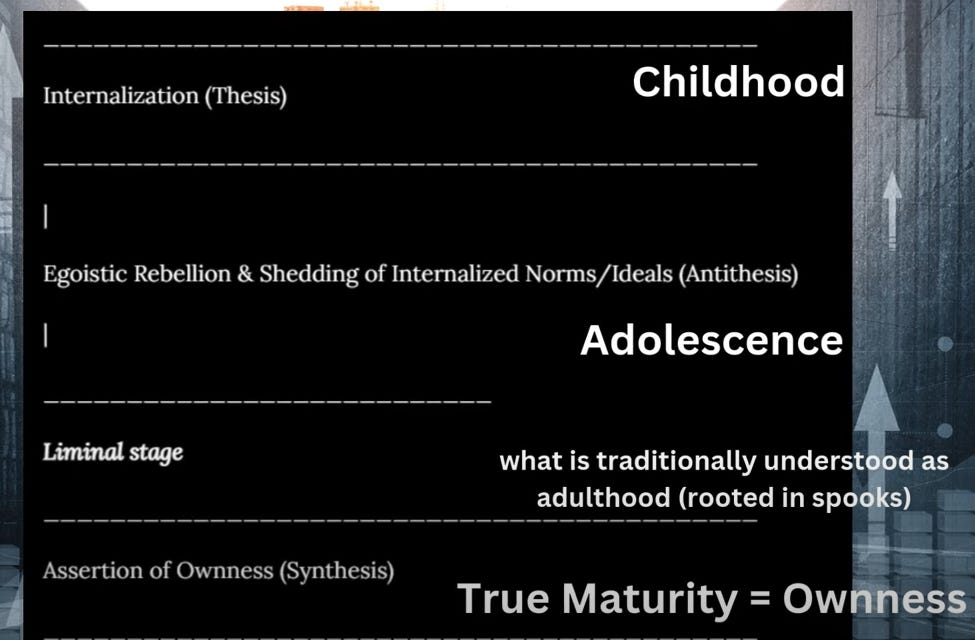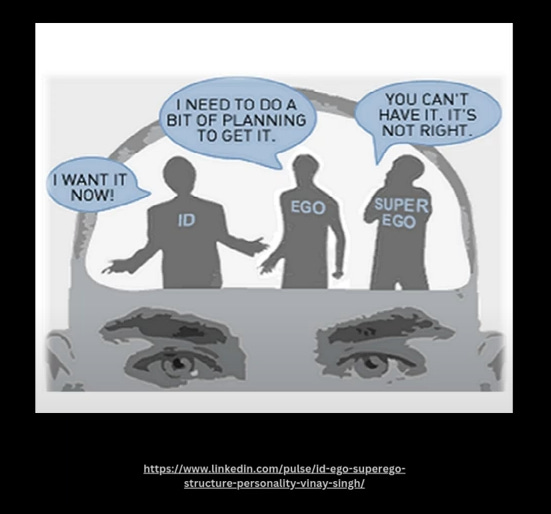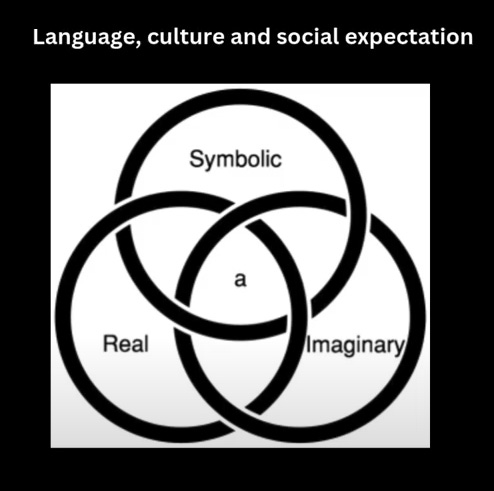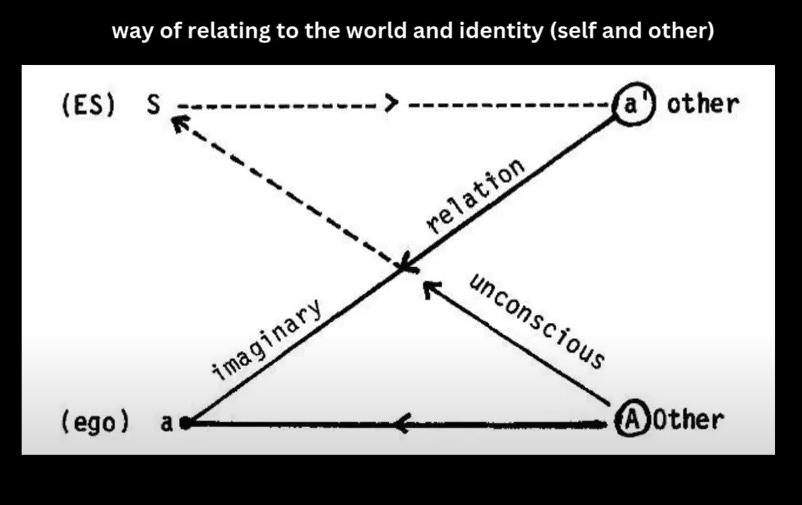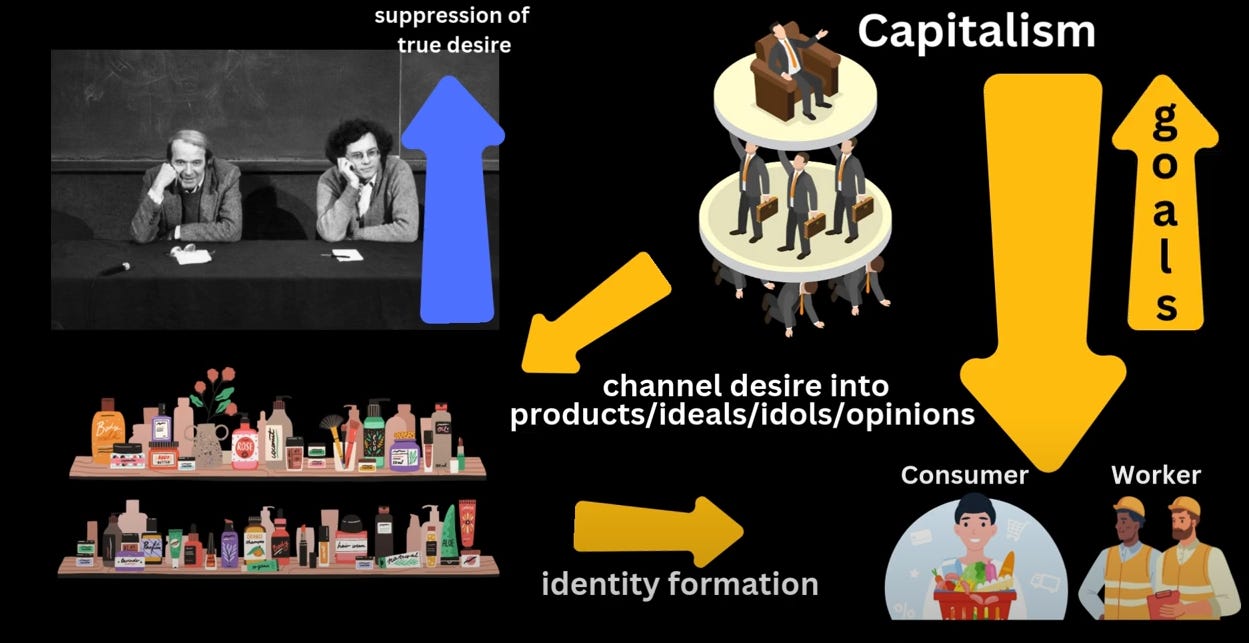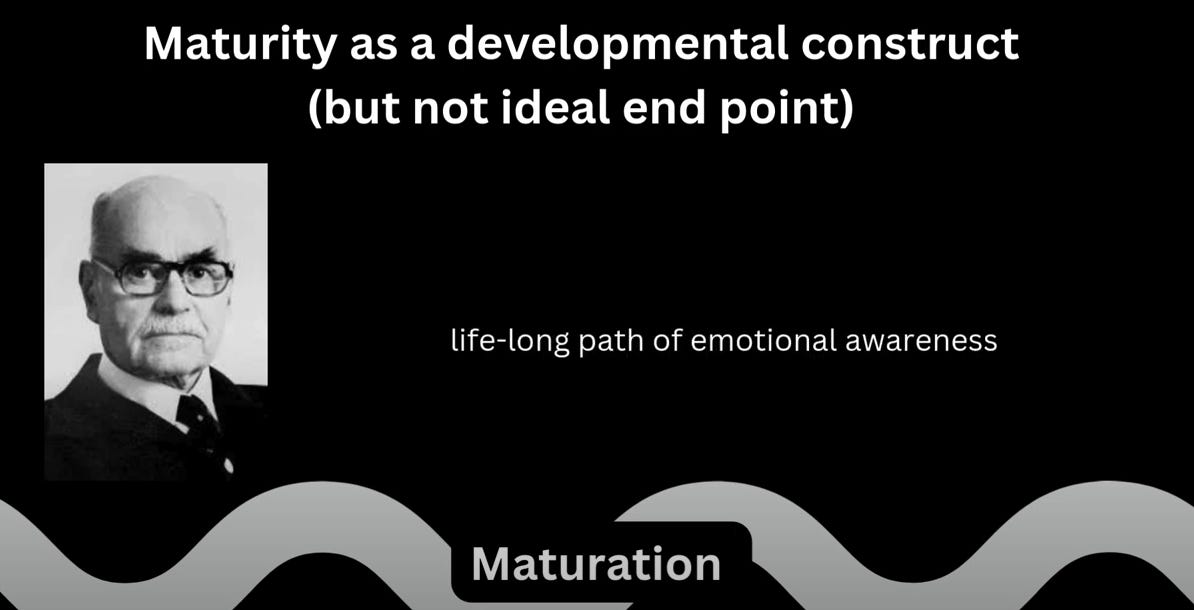Watch the video here:
In today’s world, we are inundated with the idea that maturity is synonymous with responsibility, seriousness, and self-sacrifice. The transition from childhood to adulthood is framed as a rite of passage, where one is expected to leave behind "childish" desires and embrace the role of a responsible, productive individual. But is this really what it means to grow up? And more importantly, is this ideal of maturity even real, or is it just another spook?
In this essay, we’ll explore the myth of maturity using the lens of Max Stirner’s egoism, alongside psychoanalytic theories from Freud, Lacan, Bion, Kristeva, and the post-structuralist critiques of Deleuze and Guattari. And, together, these perspectives reveal that the societal concept of adulthood is nothing more than a socially constructed illusion.
Stirner’s Spook of Maturity
Max Stirner, the radical thinker behind The Ego and Its Own, introduced the concept of “spooks”—abstract ideals that exist only to control individuals. For Stirner, the idea of maturity is just such a spook. From childhood, we are taught to “grow up,” to cast aside spontaneity, play, and desire in favor of societal expectations. Maturity, in this sense, is not about true growth or self-development. It’s about conforming to an external standard, one that dictates who we must be in order to be deemed a responsible adult.
But Stirner’s egoism rejects the notion that we must live according to these ghostly ideals. For Stirner, true freedom lies in the rejection of spooks. The egoist does not conform to society’s ideals of maturity or adulthood but instead lives according to their own desires, free from abstract obligations.
Freud’s Superego: The Enforcer of Maturity
To understand how this spook of maturity takes hold of us, we can turn to Sigmund Freud’s psychoanalytic theory. Freud divided the psyche into three parts: the id, the ego, and the superego. The id represents our base desires and instincts, while the superego is the internalization of societal norms, rules, and ideals. It’s the part of us that demands we behave according to what is “right,” even if that means repressing our desires.
The spook of maturity resides in the superego. We are taught that being an adult means suppressing the id—our spontaneous, pleasure-seeking side—in favor of duty and responsibility. This repression is enforced by the superego, which punishes us with guilt and shame when we fail to live up to the societal ideal of the “mature adult.” But this internal conflict comes at a cost: we are forced to abandon parts of ourselves in order to fit the mold of what society expects.
Lacan and the Illusion of the Mature Ego
While Freud’s theories focus on internal conflict, Jacques Lacan expands on this by showing how the concept of maturity is deeply tied to social expectations. In Lacan’s Mirror Stage, he describes how we first form an “ideal ego” when we recognize ourselves in the mirror. This ideal ego is not just a personal image but is shaped by what Lacan calls the Symbolic Order—the structures of language, culture, and social norms.
In the case of maturity, the “mature adult” is a reflection of societal expectations, an external ideal we are expected to embody. But this ideal is alienating. The more we strive to conform to the image of the “responsible adult,” the more disconnected we become from our true desires. Maturity, in this sense, is a fantasy—a ghostly image we chase, but one that ultimately leads to disillusionment.
Deleuze and Guattari: Maturity as Social Control
Deleuze and Guattari, in their critique of capitalism, take this analysis even further. In Anti-Oedipus, they argue that capitalism functions by channeling and suppressing our desires. The concept of maturity plays directly into this system. The ideal mature adult is the perfect worker—disciplined, obedient, and productive. This is what the spook of maturity demands from us: compliance with the rules of capitalism.
In this view, maturity is not about self-development or personal growth. It is about maintaining the social order. To be mature is to be useful to the system, to conform to its demands without question. In doing so, we suppress our individuality and creativity, becoming cogs in the capitalist machine.
Bion and Emotional Growth: The Real Maturity?
Wilfred Bion, a psychoanalyst known for his work on group dynamics and emotional development, offers a different perspective on maturity. For Bion, real maturity is not about conforming to societal ideals but about developing the capacity to process and contain emotional experiences. It’s about being able to think deeply and manage complex emotions, rather than simply repressing them.
However, the societal spook of adulthood doesn’t allow for this kind of nuanced development. Instead, it enforces a static model of maturity, where we are expected to abandon emotional exploration in favor of rigid responsibility. Real maturity, according to Bion, would involve emotional flexibility, not the repression of desire that society demands.
Kristeva and the Abjection of Childishness
Julia Kristeva’s concept of the abject ties directly into this societal pressure. The abject is what society casts off—what it deems impure, shameful, or unworthy. In the context of maturity, anything associated with childlike wonder, spontaneity, or unproductivity is seen as abject. These qualities are considered immature, and we are taught to feel ashamed for holding onto them.
But in rejecting these parts of ourselves, we fracture our identity. The spook of adulthood demands that we sever our connection to play, joy, and creativity. In doing so, we lose the parts of ourselves that make life vibrant and meaningful.
Breaking Free from the Spook
So, what is the alternative? If maturity as defined by society is a spook—a ghostly ideal that controls us—how do we break free?
For Max Stirner, the answer lies in egoism. True freedom comes from rejecting the spooks that haunt us and living according to our own desires. The mature adult, as society defines it, is not a real, concrete identity but an illusion—an image reflected back to us by societal expectations. To live authentically, we must reject this image and embrace our individuality.
Real maturity is not about conformity. It is about fluidity, flexibility, and self-determination. It’s about understanding and integrating our desires, rather than repressing them. It’s about living on our own terms, not according to some abstract ideal imposed by society.
Thanks for reading Recurring Paradox. If you’ve ever felt the pressure to conform to society’s idea of maturity, let us know in the comments. What does maturity mean to you? Does the societal ideal match your own experience, or is it just another ghostly ideal that haunts your life?




